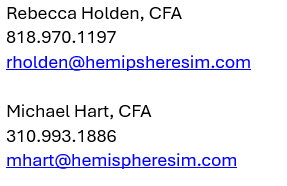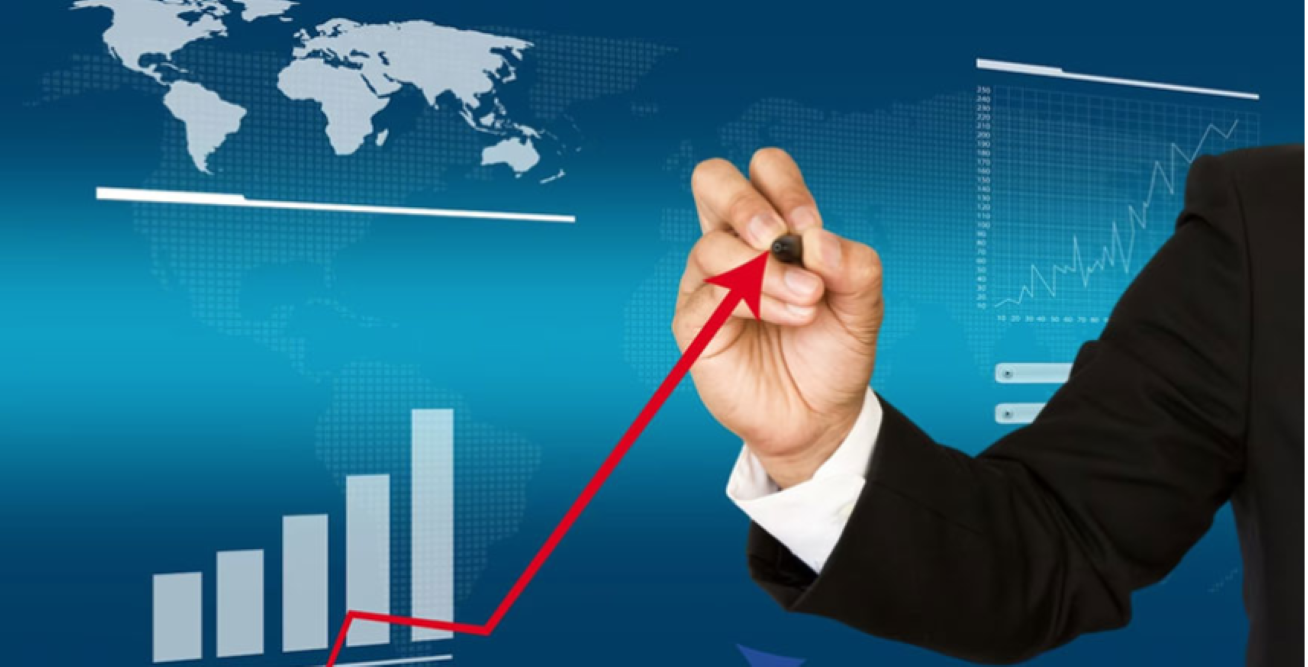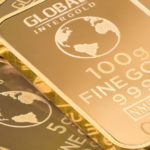Objective
To provide investors with a comparison between investing in global equities directly and investing through Exchange-Traded Funds (ETFs).
Introduction to Investing Strategies
Overview of ETFs
An ETF is an investment fund that is listed and traded on stock exchanges. An ETF may own investments such as stocks, bonds, cash, or other financial assets. The main difference between ETFs and mutual funds is the ETFs are available for purchase or sale on stock exchanges. Mutual funds on the other hand, can only be bought or sold at the end of a trading day.
Overview of Global Equities
Hemispheres Investment Management’s Global Equities is a portfolio of stocks that comprise both domestic and international equities. The portfolio is actively managed, and securities are purchased based upon a medium- to long-term time investment time horizon. There are over 45 stock investible markets worldwide. Hemispheres utilizes many such markets, including emerging markets, in researching and holding securities for its Global Equities portfolios. Hemispheres’ principals each have over 35 years of investment experience, developing their repeatable investment management processes.
Personal Choice of Global Equities or ETFs
In this paper, Hemispheres will analyze the differences and considerations for owning ETFs or Hemispheres’ Global Equities portfolios. Global investors are advised to carefully consider the pros and cons of investing in each type of investment, including consulting with an investment profession, prior to transacting, to determine the appropriateness of committing funds given one’s risk-return profile.
Pros and Cons of Choosing Global Equities
Global Equities are stocks exchange listed companies from over 45 developed and emerging market countries. The Morgan Stanley Capital International’s All Country World Index (ACWI) is the appropriate reference point for global investing. The ACWI index represents about 85% of global investible stocks and has an aggregated market value of about $70 trillion. There are about 2,900 companies in ACWI. Per Bloomberg, there are over 15,000 companies with a market valuation of more than $500 million. This compares with only about 2,600 such companies list on U.S. stock market exchange. Thus, Global Equities provide investors with an incredible opportunity to directly invest in attractively valued companies. Often countries are experiencing differing economic and interest rate cycles which may provide for distinct investment or diversification opportunities. Additionally, global equities allow investors to buy stocks in some of the fastest growing economies in the world.
Some of the challenges for Global Equities strategy are increased political risk (such as the current Ukraine-Russia war), more volatile interest rates, differing monetary policies and higher rates of inflation. Additional challenges are foreign exchange movements, negative or slow economic growth and regulatory risks. Since most Global Equities portfolios are comprised of individual securities, there is single stock risk that may negatively affect the overall portfolio. Countering the single stock risk is that the Global Equities portfolios are diversified by sectors, countries, and regions.
Advantages and Limitations of ETF Investing
Most listed ETFs are either index or sector funds. An index fund may track the performance of a stock market index such as the S&P 500, the Russell 3000 (which tracks the largest 3,000 U.S. stocks, or about 96% of the investible U.S. market, or Emerging Markets. Sector funds attempt to follow the performance of a basket of stocks, usually large capitalization stocks, in a particular economic sector of the stock market. An energy ETF, for example, is a fund that may hold a basket of oil and gas, coal, fuel, and other energy related stocks. A financial sector ETF provides investors with exposure to banking, insurance, and credit card companies. Please note that in general, ETFs do not try to outperform benchmarks. Instead, they try to mirror the returns of their stated investment strategy.
Global Equities vs. ETFs Performance Comparison
HIM Global Equities vs. Global Equities ETFs*
Annualized Compounded Returns as of Dec 31, 2023
| 1 Year | 3 Year | 5 Year | 8 Year | Since Inception 1/31/15 | |
| HIM Global Equities (net returns) | 37.76% | 11.73% | 16.63% | 15.22% | 11.29% |
| URTH iShares MSCI World ETF | 27.84% | 7.58% | 13.04% | 10.52% | 9.62% |
| IOO iShares Global 100 ETF | 27.82% | 10.41% | 15.75% | 12.73% | 11.44% |
| DGT SPDR Global Down ETF | 21.02% | 10.52% | 12.63% | 10.77% | 9.30% |
| MSCI All Country World Index (ACWI) | 22.83% | 6.27% | 12.30% | 10.36% | 9.90% |

The table represents an annualized compounded return comparison for Hemispheres’ Global Equities strategy versus three top performing world stock market ETFs and the MSCI World Stock Index. Hemispheres notes that on all time periods displayed except for one, HIM Global Equities outperformed the ETFs and the MSCI ACWI.
Risks Mitigation for Global Equities and ETFs
Hemispheres utilizes a “bottom-up” research and portfolio management strategy. The firm buys high quality/market leading companies at a material discount to their fair-market value. Such price-discount purchases lessen the risk of owning stocks. Position size limits, sector diversification and disciplined purchases work in mitigating risks for Global Equities portfolios.
Many ETFs are index-based strategies that attempt to mirror the performance of a stock market index. These types of ETFs are expected to provide little diversification from stock market movements. Some ETFs may increase risks as many prefer to own large capitalization stocks to enable ease in buying and selling securities for its fund. This “large cap” bias might make some ETFs less diversified than the index they are attempting to replicate. The large-cap bias also applies to many sector ETFs which also have liquidity needs.
Fees
Passively managed ETFs (those matching the index) generally have fees that are less than actively managed ETFs or separately managed portfolios. Active management involves research into the securities that are included in the portfolio, adding to fund manager cost. The goal of active management, whether an actively managed ETF or a separately managed account, is to enhance investor return relative to the index return.
The Investment Decision
In evaluating investment choices between HIM’s Global Equities and global equity ETFs, investors might consider whether they wish to own a diversified portfolio of 45 to 50 individual market leading or high-quality global equities, a single security that holds a basket of global equities or a combination of both. Although past performance is not indicative of future performance, Hemispheres has developed a global equity investment process that has, to-date, provided its clients with strong returns. With over 15,000 global stocks with a market valuation of over $500 million, HIM remains enthusiastic about the investment opportunities available for its Global Equities strategy.
Conclusion
The decision whether to use ETFs as part of an investment strategy is complex. Investment options should be evaluated in view of investor risk tolerance and long-term investment objectives.
There are complexities and nuances associated with investing that require expert guidance. Hemispheres Investment Management’s team of seasoned professionals have a 35-year track record of successful investment strategies. We can assist you achieve your investment goals.
Please contact Hemispheres Investment Management for a free consultation. We offer individualized guidance and strategies that can help you or your business optimize your investment policy. We can assist you achieve your investment goals. Book a meeting







